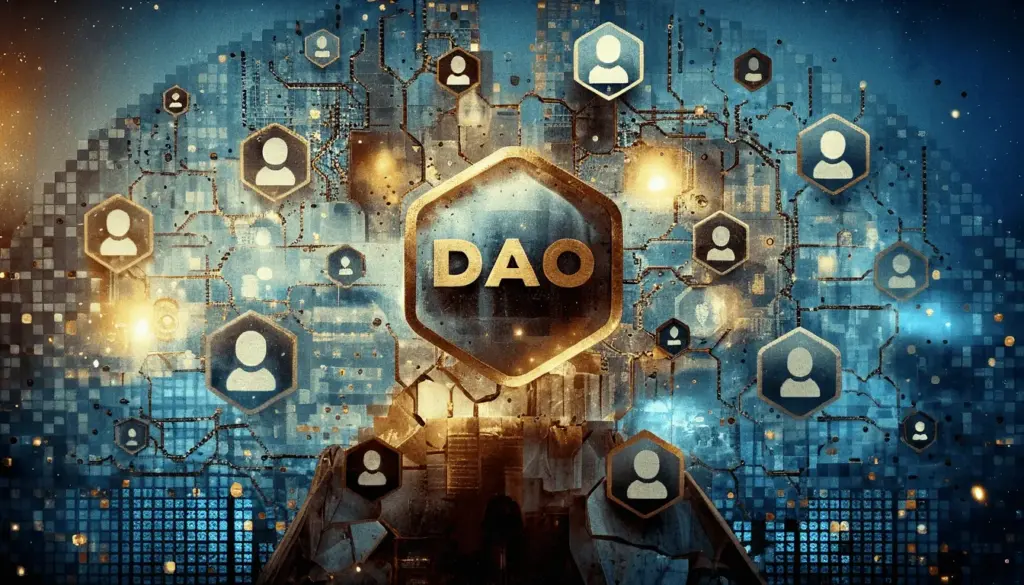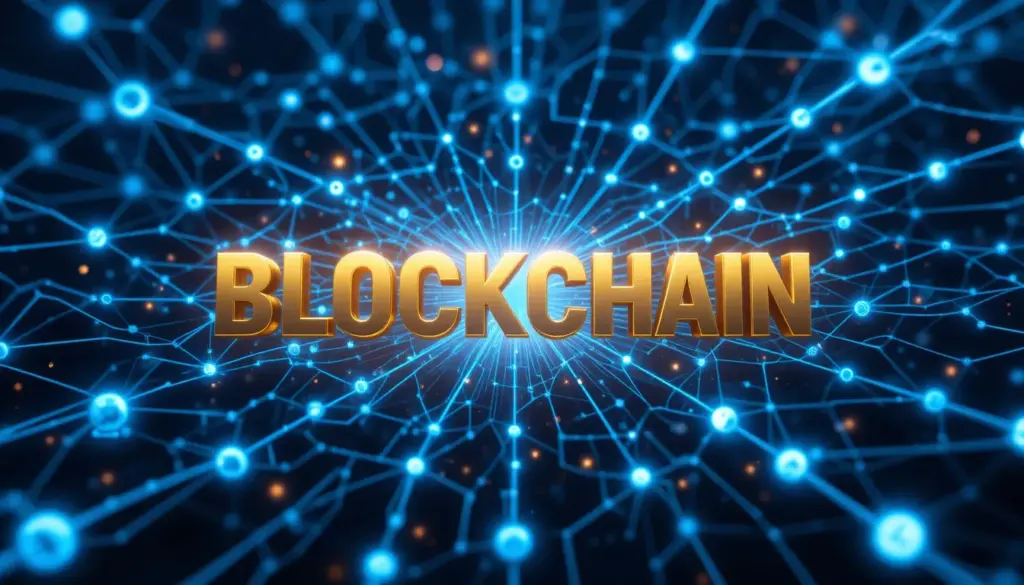Over the past decade, blockchain technology has demonstrated its potential to revolutionize not just financial systems but the very fabric of our societal structures. At the heart of this transformative power lies the innovative concept of the Decentralized Autonomous Organization (DAO). Operating without a central authority or governing body, driven instead by code and community consensus, DAOs are disrupting traditional organizational models and unlocking new possibilities. Like scattered puzzle pieces spontaneously assembling to achieve a shared objective, the emergence of DAOs is bringing a glimpse of our imagined future society into reality.
In this article, we will delve into the core concepts and characteristics of DAOs, explore key projects, analyze the current market landscape, and discuss future prospects to provide a comprehensive understanding of this groundbreaking phenomenon.

Understanding DAOs: Core Concepts and Key Features
A DAO is an organizational structure powered by blockchain-based smart contracts. Its defining characteristic is that all decisions are made through pre-defined rules and the votes of its participants, eliminating the need for a central manager or board of directors. This fundamental shift from traditional hierarchies maximizes transparency and democracy in organizational operations, effectively preventing unilateral decisions by specific individuals or groups.
📌 Key Characteristics of DAOs:
- Decentralization: Operation is distributed among network participants rather than a single entity. This enhances censorship resistance and bolsters system stability.
- Autonomy: Operations are automated based on the code embedded in smart contracts. Minimizing human intervention increases operational efficiency and predictability.
- Transparency: All transaction history and decision-making processes are recorded on the blockchain, accessible to everyone. This is crucial for building trust in the organization’s operations.
- Community-Driven: The direction of the organization is determined by the votes of community members, such as token holders. This encourages active participation and fosters a shared understanding of the organization’s development.
Leading the Innovation: Key DAO Projects
Innovative DAO projects are emerging across various sectors, expanding the Web3 ecosystem. Each project showcases the potential of DAOs through its unique goals and operational mechanisms.
✅ MakerDAO
A leading DAO responsible for issuing and managing the DAI stablecoin. MKR token holders govern key policies such as maintaining DAI’s stability, adjusting interest rates, and determining collateral asset composition. Recently, MakerDAO has been exploring the use of Real World Assets (RWAs) like US Treasury bonds and corporate bonds as collateral, bridging the gap between DeFi and traditional finance.
✅ Uniswap
A prominent decentralized exchange (DEX) where UNI token holders govern protocol upgrades, fee structures, and liquidity incentive policies. The anticipated launch of Uniswap V4 in early 2025, featuring “Hooks” for enhanced customization, and ongoing discussions about contributor reward mechanisms highlight its continued evolution. Uniswap maintains a top position in DeFi TVL, significantly contributing to market growth.
✅Aragon
A platform providing toolkits and frameworks for building and managing DAOs. With a user-friendly interface that requires no coding knowledge, Aragon simplifies DAO creation, governance structure setup, and fund management. Despite internal disputes and shifts in direction between 2023 and 2024, Aragon remains a significant player in the DAO tooling space.
✅ Mantle DAO
Formerly known as BitDAO, Mantle DAO initially aimed to be the world’s largest decentralized autonomous investment fund, investing in various projects to expand its ecosystem. In late 2023, BitDAO rebranded to Mantle DAO and integrated with the Mantle Network, with the BIT token transitioning to MNT. The focus now is on developing and supporting the Mantle Network, an Ethereum Layer 2 solution.
✅ ConstitutionDAO
Formed in November 2021 to bid on a rare copy of the U.S. Constitution at a Sotheby’s auction. Despite raising approximately $47 million (based on ETH value at the time) in a short period, the DAO was ultimately unsuccessful in its bid and subsequently dissolved. While the purchase failed, ConstitutionDAO demonstrated the remarkable fundraising and community mobilization capabilities of DAOs to a global audience.
Beyond these examples, numerous innovative projects leveraging DAOs are actively being developed and operated in areas such as decentralized social media, NFT platforms, and gaming.
The Rapid Growth: Current DAO Market Status and Investment Trends
The DAO market is experiencing rapid growth alongside the advancement of Web3 technologies. New markets and services, including DAO management tools, governance consulting, and DAO-related infrastructure, are emerging and enriching the ecosystem.
- DAO Treasury Size: As of December 2024, the total assets under management (AUM) by major DAOs exceeded $20 billion. This signifies the evolution of DAOs from experimental phases to significant organizational entities managing substantial capital. (Source: Aggregated data from DeepDAO and other relevant data platforms)
- Increase in Active DAOs and Participants: The number of new DAOs continues to rise, and the number of users participating in governance votes is also on an upward trend. This indicates growing interest and engagement in DAOs. (Approximately a 15% increase in active DAOs in Q4 2024 compared to Q3 2024, Source: Analysis of data from governance platforms like Snapshot)
- Growing Venture Capital Investment: Venture capital and institutional investors are actively investing in DAO-related projects. This reflects the market’s positive assessment of the growth potential of DAOs. (Around a 30% increase in investment in DAO-related startups in 2024 compared to the previous year, Source: Crunchbase and other investment data analysis)
These data points clearly illustrate that DAOs are not a distant future concept but a significant and evolving trend in the present.
The Promise and Challenges: The Future Outlook of DAOs
While DAOs possess groundbreaking potential, they also face challenges that need to be addressed. Low governance participation rates, issues with decision-making efficiency, and legal and regulatory uncertainties are notable hurdles. Furthermore, security vulnerabilities in smart contracts can pose significant risks to DAO operations.
Despite these obstacles, experts hold a highly optimistic view of the future of DAOs. With technological advancements leading to improved governance mechanisms and the development of clearer legal frameworks, DAOs are expected to drive innovative changes across various sectors.
- More Sophisticated and Efficient Governance Systems: Improvements in Proof-of-Stake (PoS) based voting methods, the adoption of Delegated Voting, and the introduction of incentive systems to encourage active participation are anticipated to enhance governance efficiency.
- Expansion into Diverse Industries: Currently prevalent in Web3 sectors like DeFi and NFTs, DAOs are expected to extend their reach into content creation, social media, gaming, and even traditional business operations.
- New Forms of Community and Collaboration: DAOs offer a novel way for individuals worldwide to collaborate autonomously towards common goals, transcending geographical limitations. This positions them as a potentially crucial organizational model for the future society.
In Conclusion
As we have explored, Decentralized Autonomous Organizations, with their core values of decentralization and autonomy, are presenting a new paradigm for transparent and democratic organizational operations, driving innovation within the Web3 ecosystem. With substantial capital and active investment, DAOs have moved beyond mere ideas and are deeply integrating into the real world, poised to expand their influence across various domains. While challenges remain, the ongoing technological advancements and the efforts of the community to overcome these hurdles suggest that DAOs will be a fundamental driving force in reshaping how organizations function in the future.


